Disclaimer statement: The information and resources contained within this document are for educational purposes only. Please make sure to discuss any resources with the Here for the Girls Team. This information should not be used for self-diagnosis or treatment. This information should not be used in lieu of care from a licensed physician or mental health practitioner. Although the content of the resources has been reviewed by the Here for the Girls Team, you should use caution whenever accessing or referring to information from outside sources, including the Internet.
Age disparities in breast cancer services have persisted creating a barrier for young women navigating their breast health. Philecia La’Bounty shared her story of being diagnosed with breast cancer at 35 years old with People magazine. La’Bounty found a lump in her breast in 2018 and reached out to a medical program that offered services for free. After the physician completed an ultrasound, La’Bounty was told it was a benign cyst and that it would dissipate over time. She decided she wanted further testing and requested a mammogram. La’Bounty reported to People magazine that she was denied a mammogram and stated, “I was told, ‘You’re 30, you’re healthy, you have no other symptoms, no family history of breast cancer.’ “ (Pfeffer, 2022) By 2022, La’Bounty connected with a physician that felt the lump on her breast and ordered a mammogram. La’Bounty was diagnosed with stage IV breast cancer at 35 years old. Age disparities in breast cancer treatments, such as mammograms, continue to be prevalent among young women. The American Cancer Society (2023) identified that young women make up 4% of breast cancer diagnoses within the United States. The Centers for Disease Control and Prevention (2023) found that young women diagnosed were diagnosed with breast cancer “[that is] more likely to be hereditary than breast cancer in older women, more likely to be found at a later stage, and is often more aggressive and difficult to treat, [and] often coupled with unique issues, including concerns about body image, fertility, and feelings of isolation.” (CDC) Living Beyond Breast Cancer highlighted the specific experiences of young women navigating their breast health such as access to services. LBBC reported that it’s common for young women to be turned away for screenings, less likely to be diagnosed early, or provided with “watching and waiting” advice (LBBC, 2022). LBBC also highlighted the challenges in diagnosing younger women with breast cancer. Younger women tend to have more dense breasts which can result in difficulty screening (LBBC, 2022). The National Cancer Institute reported that “dense breasts can make a mammogram more difficult to interpret.” (NCI, n.d.) An additional challenge is the mandated age for mammograms remains 45 years old. However, young women can still be diagnosed with breast cancer and has raised awareness surrounding lowering the age for receiving mammograms.
As an organization dedicated to supporting young women with breast cancer, we have gathered resources to provide additional information and support. The Breast Cancer Now organization shared resources for young women navigating a recent diagnosis. Breast Cancer Now compiled a resource list regarding fertility and breast cancer treatment such as questions to ask at a fertility clinic, education on fertility and if treatments impact an individual’s fertility, and procedures to preserve fertility. Additionally, their website provides suggestions on talking to family and friends about a breast cancer diagnosis, treatments for young women, and family history of breast cancer and when to have genetic testing. You can access additional information here. Living Beyond Breast Cancer created a resource list for young women navigating a breast cancer diagnosis such as how to read your pathology report, questions to ask your physician, different treatment options, and how to access mental health support. You can access the resources here. If you have any questions, please reach out to socialwork@hereforthegirls.org.
